Gods & Heroes: Rome Rising hands-on preview
We check out Heatwave Interactive's attempt to resurrect the other Perpetual MMORPG
When the short-lived Perpetual Entertainment shut its doors in 2008, it left behind two games. One was Star Trek Online, which had been snatched up by Cryptic the year before. The other was Gods & Heroes, which was eventually picked up by startup Heatwave Interactive.
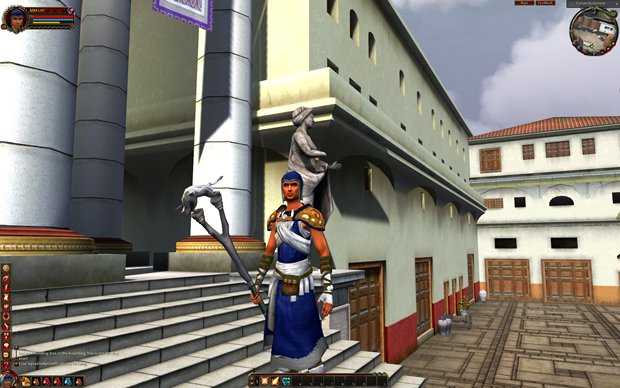
What they got was an MMORPG with a lot of half-realized ideas and outdated mechanics. The game's much ballyhooed minion system only amounted to a fancy way to inflict more DoT (that's Damage Over Time for those of you unfamiliar with MMORPG arcana), the once impressive graphics were showing their age and the quests had little connection to the overall storyline. It didn't quite need an extreme makeover of the sort seen on TLC, but it was close.
According to CEO Anthony Castoro, about a third of the original game will remain in place, while the rest will either be completely new or improved. Tweaks include better AI for the minions (creatures that essentially serve as additional party members), substantial bug fixes and a completely overhauled battle system. Where the original had turn-based mechanics resembling those of The Matrix Online (remember that game?), Heatwave has opted for a more traditional system like that of World of WarCraft.
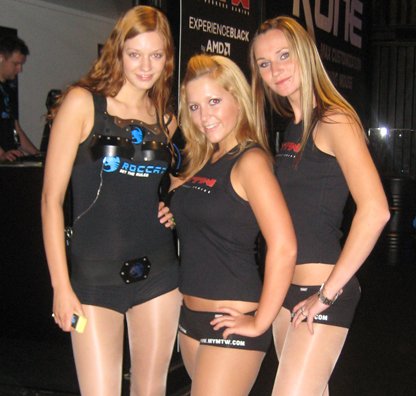
Actually, "traditional" is a word that the dev team used quite a bit to describe Gods & Heroes. The focus on loot, the character classes and the combat are straight out of the standard MMORPG playbook. Heatwave has even opted for the increasingly rare subscription-based model, which puts them in direct competition with the likes of World of WarCraft.
"We argued that one for a long time," Castoro told us. "Eventually we came to the conclusion that our audience is mostly thirty-something, doesn't want a free MMO with lots of kiddies running around, and are perfectly willing to pay a subscription."
So what is it that sets Gods & Heroes apart from the pack then? Heatwave seems to be hoping that it'll be the abillity to command a Minotaur and other mythical creatures in battle, along with a few other features.

What's interesting about the overhauled minion system is that it basically allows one player to control an entire raiding party. Players have the ability to command up to four minions, and they can function as everything from a healer to a tank. Thus, a raiding party that would normally be limited to five players in Gods & Heroes suddenly jumps to 25 AI and player controlled characters.
Sign up to the GamesRadar+ Newsletter
Weekly digests, tales from the communities you love, and more
"I like to think of it an MMO where your party members are reliable," Heatwave lead designer Tim Schubert said half-jokingly. "There's no Leroy Jenkins with our characters."
Interesting as the minion system is though, what will likely be Gods & Heroes' main selling point is the ability to fully customize your personal estate. Like everything else in Gods & Heroes, the system was present in the original game, but it was so limited that you couldn't even leave the estate. Heatwave has expanded the custom instances to cover an entire valley, upon which it will be possible to place monuments to your greatness.
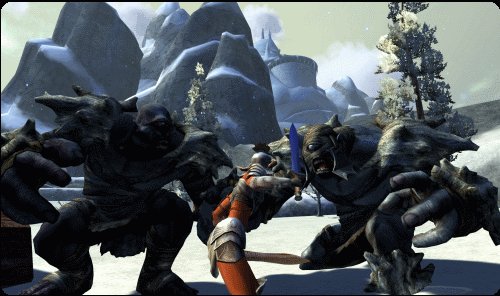
It's nothing so much as a Roman Animal Crossing (a game that Castoro admits the team discusses on a regular basis), which is exactly what the genre needs. It's all well and good to have a warrior clad entirely in epic loot, but it's even better when said hero can boast their own palace.
"MMOs are lifestyle games, they aren't console games," Castoro said. "So anything we can do where someone puts down roots, we're gonna do it."
Many of the features are still on the drawing board, but Heatwave plans to drive the customization with resource gathering minigames while including perks like the ability to train Gladiators on the premises. And the estate won't just be a fancy trophy case either; Schubert said that they plan to make it possible to pick up any number of quests at the gates, and building up a solid library will make it possible to obtain stronger minions.
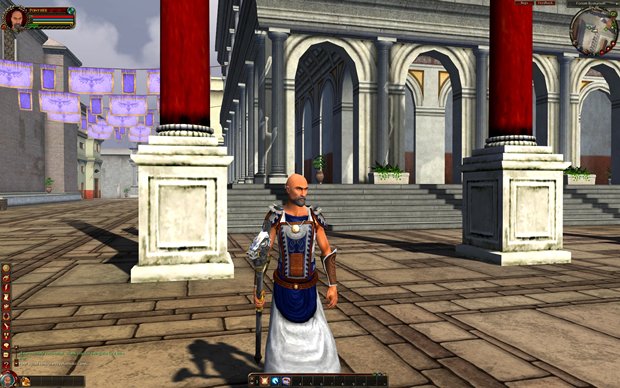
Features like the minion system and the estate system should make for a couple interesting bullet points when it comes time for Gods & Heroes' release, which Heatwave is hoping will be this year. Castoro wouldn't give a specific release date, but he did say that Heatwave is aiming for the first half of the year ("Before Star Wars [The Old Republic], I know that much," he laughed).
Many of the features won't be available out of the box. Instead, Heatwave is planning a slow rollout in an effort to avoid the poor launches that have plagued other MMORPGs. The game will initially be capped at level 30, and Heatwave is planning on shipping with four classes instead of the original six. Even PvP will be left out of the initial release, though Heatwave has a few ideas for the future, such as tournaments at the Roman Coliseum.
Given the game's modest sales expectations, slow rollout is probably the right way to go in this case. It'll make it possible for a small studio like Heatwave (the studio currently employs roughly 30 people) to release a stable product while steadily growing their subscriber base. According to Schubert, they are already planning to kick the level cap up to 40 shortly after launch, with another increase to 50 not long after.
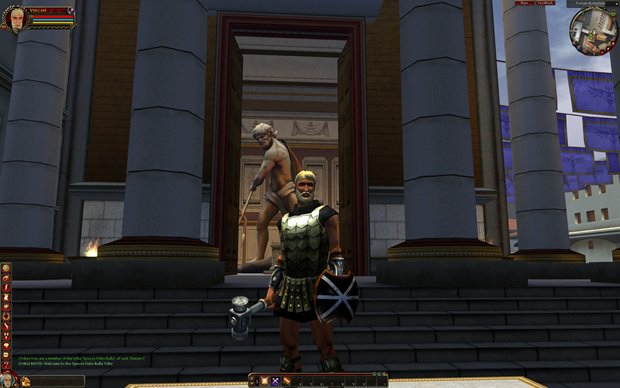
Gods & Heroes enters a crowded market for MMORPGs, and its subscription fee may be difficult for some to stomach; it is being developed by a veteran team though, and the changes to the battle system, the estate system and the minion system appears to be a dramatic improvement over Perpetual's original vision. Heatwave's makeover (or resurrection, if you prefer) may not be enough to help Gods & Heroes stand out from the Rift: Planes of Telaras of the world, but it may end up catching the eye of MMORPG connoisseurs looking for something different -- just the sort of people who can help a game like this flourish.
Mar 3, 2011


